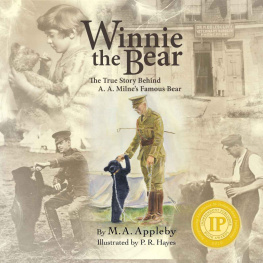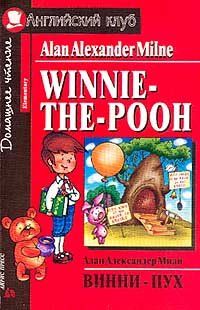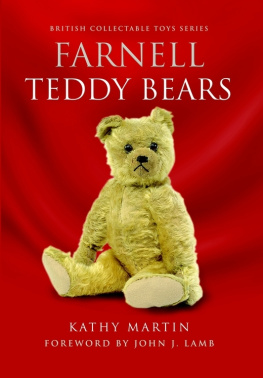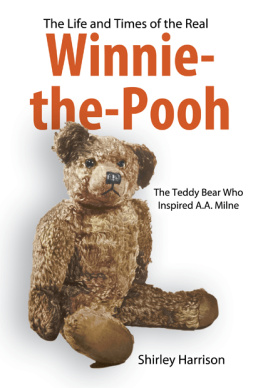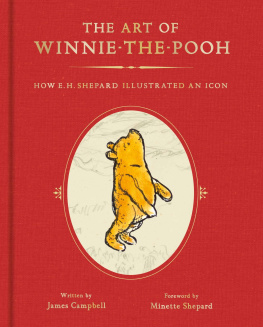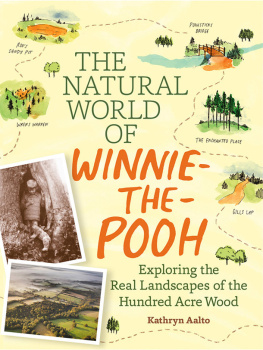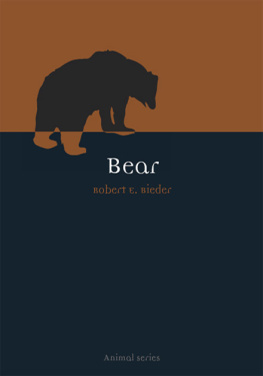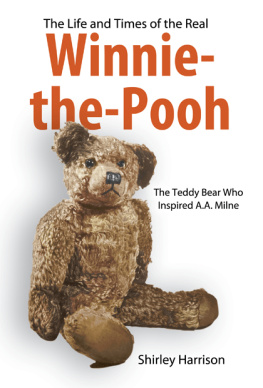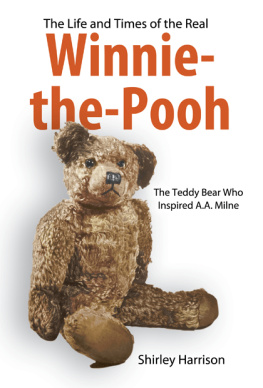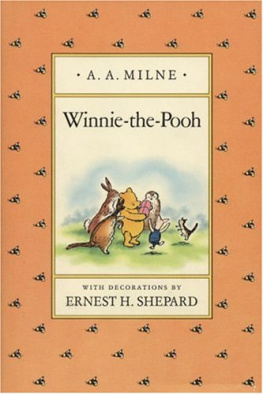Contents
2011 Mary Anne Appleby
All rights reserved. No portion of this book, with the exception of brief extracts for the purpose of literary or scholarly review, may be reproduced in any form without the permission of the publisher.
Published by: Dominion Street Publishing. Winnipeg, Manitoba, Canada.
dominionstreetpublishing.com
Front cover image: Winnie the Bear and Harry Colebourn on the Salisbury Plain in the late fall of 1914.
Library and Archives Canada Cataloguing in Publication
Appleby, M. A. (Mary Anne)
Winnie the bear / M.A. Appleby ; P.R. Hayes, illustrator.
Includes bibliographical references.
1. Winnie (Bear). 2. Coleburn, Harry, 1887-1947. 3. Black
bear--Biography. 4. Human-animal relationships. 5. World War,
1914-1918--Veterinary service. 6. Milne, A. A. (Alan Alexander),
1882-1956. Winnie-the-Pooh. 7. Shepard, Ernest H., 1879-1976.
8. Winnie-the-Pooh (Fictitious character). I. Hayes, P. R. (Philip Ross)
II. Title.
QL795.B4A66 2011 599.7850929 C2011-906924-5
Cover and text design by Steven Rosenberg at Doowah Design.
Edited by Marjorie Anderson, Trish Loewen and Jenny Gates.
The illustrations were drawn by P. R. Hayes from original photographs,
many of which are reproduced in the back section.
This book has been set in Cochin, a font that was especially popular at the
beginning of the 20th century.
Cover image: Winnie at the London Zoo, photo courtesy of the Colebourn Family Archives
Paperback Edition 2014
Kindle Edition 2014

For my daughter, my mother and my father.
Some people are good with children, just as others are good with animals. It isnt just that they like them and enjoy playing with them. There is a mysterious something about them that the child or animal is unconsciously and immediately aware of. The animal loses its fear, the child his shyness. The animal lets itself be touched. The child starts scrambling all over you.
Christopher R. Milne, The Enchanted Places
Prologue
T here is no better way to end a hot, humid Michigan day than by having a swim in Pickerel Lake. A twenty-minute ride from Ann Arbor along Huron River Drive, then down some back roads, gets us to a spit of beachthe launching spot for hours of lake time in satiny smooth clear water.
Its August 1986, and Ive just arrived home following an evening swim with my friends. The night air is soft and humid, and my casement windows are open wide to welcome every bit of breeze. Its impossible to dry offthe hardest thing to get used to for a Canadian prairie girl. Where I come from, we brag about the dryness of our climate.
The phone rings. I dash across the old wooden floor of my apartment.
Hello?
The voice of my father is on the other end. Its me. He has a way of turning that phrase into one word with a slightly indecipherable accent: Eetzmeee.
Usually, my parents are both on the line, but Mum is at her yoga class, and I sense that Dad has something to say that cant wait.
Whats up? I ask, after an exchange of pleasantries that confirm we are both fine.
Wait until you hear the story I have to tell you, he says, with unmistakable glee in his voice.
Tell me. I pull a kitchen chair away from the table and sit down.
Do you remember my boyhood chum, Fred Colebourn?
Yes. I recall Dad telling me that he and Fred often played tennis all day long during their childhood summers in the 1930s at Loni Beach, in Gimli on the shore of Lake Winnipeg.
Well, Fred and I had lunch yesterday. He told me a story I hadnt heard before about his father, Harry.
Mm-hmm, I say automatically, having mastered the classic phrasing of a clinical psychologist.
Well, Harry came to Canada from England just after the turn of the century, completed his veterinary training down east and then moved to Winnipeg to take a job here. He was in the military, so when World War I started he immediately signed up.
And this is where the story gets interesting, my father declares.
Hmm, I wonder what he means by interesting? Dad has always been such a kidder. My radar switches on in anticipation of another of his stories.
He continues. On his way across the country by train, before heading off to war, Harry and the troops stopped at a small train station in northern Ontario. There he bought a bear cub and took it with him on the trip overseas. He named the bear Winnie after Winnipeg. Harry left Winnie at the London Zoo when he went to the battlefields, and then ended up donating her to the Zoo after the war ended. In the 20s, A. A. Milne took his son, Christopher Robin, to that Zoo.
Really, I say, knowing that my rising doubts are apparent in my tone of voice. I can see where this story is heading and I am shocked to think that this Winnipeg bear is going to be somehow connected to Winnie-the-Pooh.
The boy formed a fond relationship with the bearand would actually go into the cage and play with it there. Milne used Winnies name for Winnie-the-Pooh, the famous bear in his childrens books.
So, Winnie-the-Pooh is named after a bear that was named after Winnipeg? I ask incredulously. In other words, Winnie-the-Pooh is named after Winnipeg? I repeat as I try to grasp the concept.
Exactly, my father replies.
Youre kidding, I say. The alarm bells on my radar are going off, but he solemnly replies that he is absolutely not kidding. We go back and forth like this for several minutes.
Unbelievable! Its all I can think to say.
We chat for a few more minutes before the call ends, but my mind can barely focus. Afterward I sit in stunned silence. This cannot be true! How is this not known by everyone already? My father must be kidding.
I have serious doubt and I come by this doubt honestly. With my father, if I cant immediately determine some substantiating information for his stories, questioning the validity of the content is a rational next step.
At such times, my childhood experiences come into focus and trigger my adult perceptions. For example, the early spring mornings each year during childhood when, as soon as my brothers and sisters and I got up from our beds, he would tell some variation of the principal phoned and school has been cancelled story. Once the jubilation had subsided momentarily, hed announce, April Fools Day! There would also be missing plates of food, or worse yet, dessert, if you happened to step away from the dinner table. A bit of detective work was required to retrieve the provisions.
As young children we were easily fooled by his jokes and tricks, which happened every so often throughout my childhood. None of them were mean-spirited in any way, and, as Ive come to realize, they had an instructive purpose. Placing his children in the position of having to figure out the truth and to think for themselves was something my father was good atand likely the impetus for the investigative inclination that is still with me today.
I sit and think about the story my dad has just related. None of the details are familiar to me. I did read the Winnie-the-Pooh books as a child, but know nothing of a connection between the fictional bear and the Canadian one supposedly ferried overseas in a troopship. The chain of events that followed, with Harry Colebourn leaving the bear at the London Zoo and A. A. Milne and his son befriending her there, is astoundingif true. (Who in their right mind would let a child enter a bear cage at a zoo?!) And yet, the story is too detailed for my father to have conjured it up. If its true, our familys connection to this new knowledge is intriguing.

